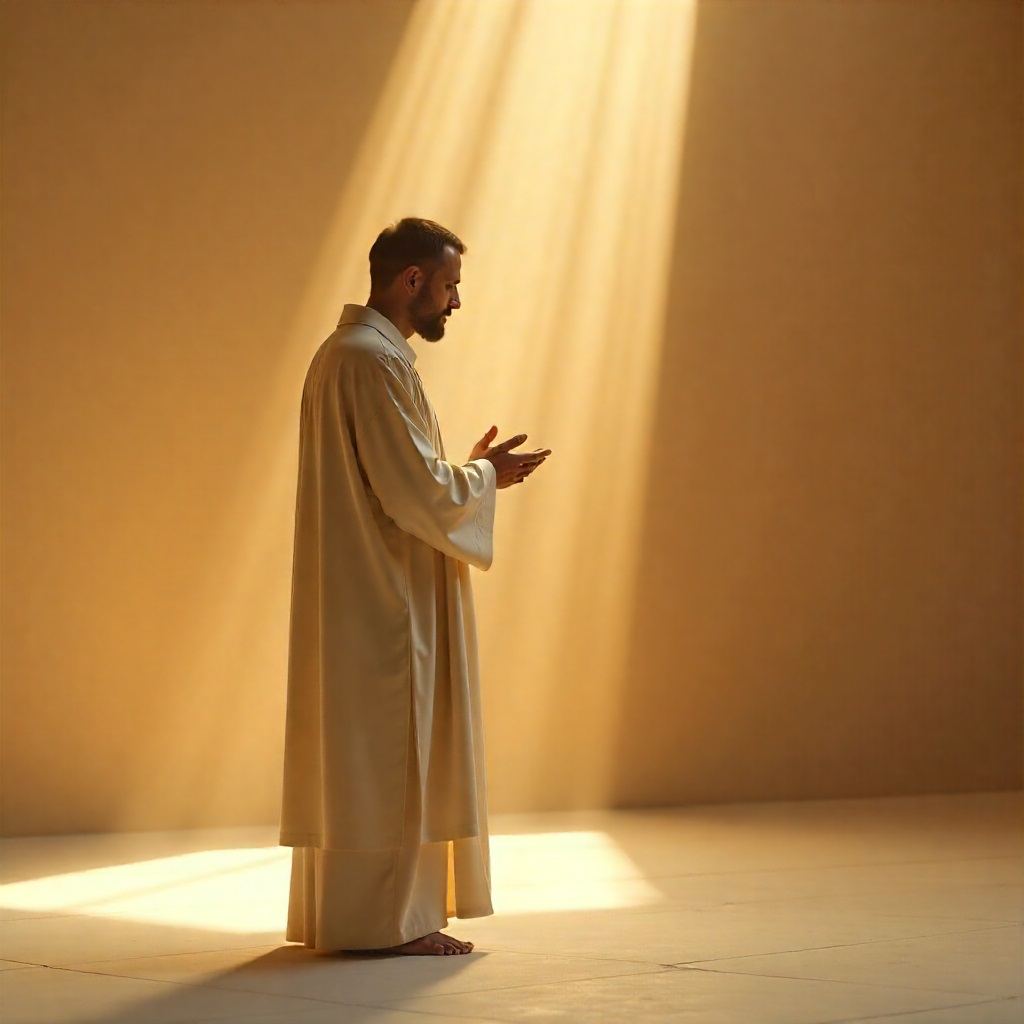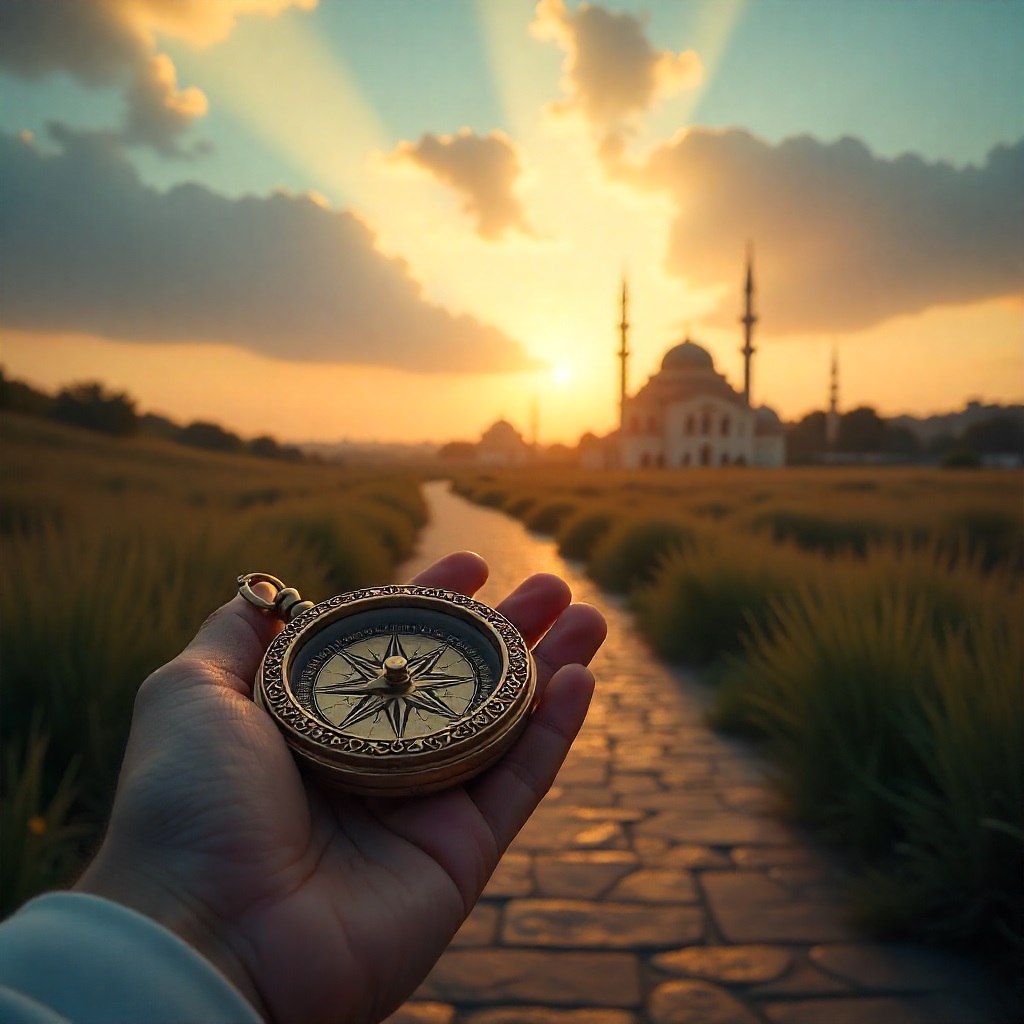As-salamu ‘alaykum, dear friend,
Welcome back. You stand now at the most pivotal point of our journey. Over the past few weeks, we have traveled a path of profound self-discovery and spiritual awakening. We began with the honest admission of a “Meaningful Void,” which we came to understand as the beautiful call of our Fitra back to its Creator. This led us to the “Great Answer”: a life of comprehensive worship, or Ibadah. In our last lesson, you bravely turned your gaze outward, “Hearing the Call of Need” and accepting your sacred role as a Khalifah, a steward of this earth, with the Prophetic mission to be of benefit to others.
You have identified the unique gifts Allah has entrusted to you (from Lesson 3). You have identified the calls of need that resonate most deeply with your heart (from Lesson 4). The question is no longer what are my gifts? or what are the needs? but rather: “How do I bring these two sacred realities together into a single, powerful force for good, a guiding compass for my life?”
This is the very purpose of this lesson. This is where the abstract concepts of self-discovery and divine service become a concrete, actionable, and deeply personal reality. This is our workshop to create your Islamic mission statement, the sacred sentence that will become your north star in the often-confusing cosmos of modern life. It is the final step in discovering your unique contribution to the purpose of life in Islam.
This is not a corporate exercise; it is an act of spiritual synthesis. It is the moment we move from knowing our potential to articulating our divine purpose, for Allah’s sake.
“وَمَا خَلَقْتُ الْجِنَّ وَالْإِنْسَ إِلَّا لِيَعْبُدُونِ”
“And I did not create the jinn and mankind except to worship Me.”-Quran (51:56)
The Divine Compass: Why an Islamic Mission Statement Matters
In today’s world, we are bombarded with countless choices, distractions, and competing priorities. We have access to more information and opportunities than any generation before us, yet many of us feel more lost than ever before. This is because we have all the directions in the world, but we lack a compass to guide us towards a meaningful purpose of life in Islam.
An Islamic mission statement, crafted with an Islamic lens, is that compass. It is a powerful, concise declaration that serves several vital functions:
- It Provides Clarity: It cuts through the noise of competing goals and social expectations. When faced with a decision—a new job offer, a volunteer opportunity, a way to spend your free time—you can ask, “Does this align with my Islamic mission statement?” If the answer is no, the decision becomes much easier.
- It Fosters Intention (Niyyah): It serves as a constant reminder of the why behind your actions. It helps you root your daily tasks—from your work to your family life—in the highest purpose, ensuring that every act is infused with the sacred intention of serving Allah. As we learned, your Niyyah is the “Divine Amplifier” that turns a worldly act into an act of Ibadah.
- It Builds Resilience: The path of purpose is not always easy. There will be setbacks, criticism, and moments of doubt. Your Islamic mission statement is your anchor. It reminds you of the higher calling, the trust (Amanah) that Allah has placed in you, and the ultimate reward. It helps you persevere when external motivation wanes.
- It Gives a Voice to Your Faith: Your Islamic mission statement is a way of saying, “This is how I will live out my shahada (testimony of faith) in the world.” It is a testament to the fact that Islam is not just a religion of ritual but a comprehensive way of life that gives purpose and direction to every facet of your existence.
So, let us now begin the sacred work of crafting this compass.
“Whoever relieves a Muslim of a worldly affliction, Allah will relieve him of one of the afflictions of the Day of Resurrection. And whoever makes things easy for an insolvent person, Allah will make things easy for him in this world and the Hereafter. And whoever covers a Muslim’s fault, Allah will cover his fault in this world and the Hereafter. And Allah is with the slave as long as the slave is with his brother.”-Muslim 2699
The Workshop: From Intersection to Articulation of Your Divine Purpose
This is a hands-on section. Take out your notes from Lesson 3 (Your Unique Talents) and Lesson 4 (The Calls of Need). This is where the magic happens. We will use a simple, powerful formula.

Our ultimate goal is to create a statement that answers three key questions:
- What am I doing? (Your gifts)
- For whom am I doing it? (The people or area of need)
- Why am I doing it? (For the sake of Allah, to achieve a specific benefit)
Think of it as a Venn diagram. The intersection of your gifts and the world’s needs, fueled by your passion and sincere intention for Allah, is your divine purpose. Your Islamic mission statement is the sentence that describes that sweet spot.
Here is the formula we will use:
“I will use my God-given gift of [TALENT/SKILL] to serve [SPECIFIC GROUP/AREA OF NEED] by [ACTION/BENEFIT] for the sake of Allah (SWT).”
Let’s break it down, step by step.
Step 1: The Gifts You Have
Look at the list of talents, skills, and gifts you identified in Lesson 3. These can be innate qualities (empathy, patience), acquired skills (coding, writing, public speaking), or passions (cooking, gardening, organizing).
Choose the one or two talents you feel most called to use right now. Don’t worry about being perfect. This is about starting.
Reflection: Which of your gifts feels most ripe for service? Which one, when you use it, makes you feel most connected to your Lord?
Step 2: The Call You Hear
Now, look at the list of needs you identified in Lesson 4. These could be needs in your family, your community, or the wider world. It could be the need for compassionate listeners, for fair leadership, for wholesome food, for beneficial knowledge.
Choose the one or two calls of need that resonate most deeply with your heart. This is the “World’s Echo.” It’s the need that makes you feel a tug of responsibility, a desire to act.
Reflection: When you read your list of needs, which one makes your heart ache the most? Which one do you feel a personal, divine pull to answer?
Step 3: Putting it All Together: Crafting Your Statement
Now, it’s time to fill in the blanks of our formula. Let’s work through some diverse examples to show how this can be applied to any life stage or skill set.
Example 1: The Stay-at-Home Parent
- Talent: Patience, empathy, and organizational skills.
- Need: The need for a safe, loving, and nurturing environment for children to grow as confident Muslims.
- Mission Statement: “I will use my God-given gift of patience and empathy to serve my family by raising my children with love, strong character, and a deep connection to Allah (SWT) for His sake.” This clearly articulates their contribution to the purpose of life in Islam.
Example 2: The Engineer
- Talent: Analytical skills, problem-solving, and precision.
- Need: The need for ethical and sustainable technology in the world.
- Mission Statement: “I will use my God-given gift for engineering and problem-solving to serve humanity by building ethical and impactful technology for the sake of Allah (SWT).” This statement captures their divine purpose through their professional skills.
Example 3: The Communicator/Writer
- Talent: Eloquence, clear communication, and a love for spreading knowledge.
- Need: The need for beneficial, hopeful Islamic content in a world filled with misinformation and despair.
- Mission Statement: “I will use my God-given gift of writing to serve the Muslim Ummah by creating clear and inspiring content that strengthens their faith and guides them towards a purposeful life for the sake of Allah (SWT).” This mission is a direct path to fulfilling the purpose of life in Islam.
Your Turn: Now, take a deep breath, and prayerfully write your own Islamic mission statement using the formula. Don’t overthink it. This is a living document, not a final decree. Just articulate where you feel your gifts and the world’s needs intersect right now.
My Islamic Mission Statement is: “I will use my God-given gift of ________________ to serve ________________ by ________________ for the sake of Allah (SWT).”
Overcoming the “What Ifs” of Purpose
As you write your Islamic mission statement, you may find your mind raising doubts. This is the natural friction of moving from intention to action. Let’s address some of these common hesitations with the wisdom of our faith.
“What if my mission is too small?” The Prophet (peace and blessings be upon him) taught us that the most beloved of deeds to Allah are those that are done consistently, even if they are small. Allah’s metric is not scale; it is sincerity. A mother who uses her gift of nurturing to raise a single righteous child has done an act of service more beloved than a globally-acclaimed project done for the sake of ego. Your divine purpose is not about making a splash in the world’s oceans; it’s about being a single, pure drop of good, consistently, in your own corner of the world. And from that drop, Allah can create a ripple effect you could never have imagined.
“What if my mission changes?” Your Islamic mission statement is a compass, not a contract. Just as a ship’s compass can be re-calibrated for a new destination, your mission can and should evolve as you grow. The purpose of a young professional will be different from that of a retired person. A life-altering event may cause you to discover a new talent or hear a new call of need. That is not a failure; it is a sign of spiritual and personal growth. Revisit and refine your statement every few years, or after a major life transition. The core will likely remain the same: using what you have been given, for the sake of the One who gave it to you.
“I don’t think I have a gift.” This is a whisper from Shaytan, designed to paralyze you. The truth is that everyone, without exception, has been entrusted with a unique set of qualities. Your gift might not be a high-level skill; it could be something as simple as a comforting presence, an empathetic ear, or a natural ability to make people smile. The Prophet (ﷺ) told us, “Your smiling in the face of your brother is charity.” This is a profound gift. Your divine purpose doesn’t have to be a grand gesture; it can be the sum of a thousand small, sincere acts of kindness.

The Islamic Mission Statement as a Dhikr
You might be wondering, “Now that I have this statement, what do I do with it?”
You turn it into a form of Dhikr.
Your Islamic mission statement is not just something you write and forget. It is a powerful reminder you should internalize and live by. Print it out and place it somewhere you will see it every day: on your desk, on your phone’s lock screen, or on your bathroom mirror. Read it aloud to yourself. Let it become the silent prayer that undergirds your every action.
Before you begin your work for the day, whether it’s at the office, in the classroom, or in the home, you can quietly recite your mission statement. It is a powerful way to re-center your Niyyah, to remind yourself that this is not just a job or a chore; it is an act of worship. It is a conscious choice to tie your actions to your divine purpose.
This practice transforms your purpose from an abstract idea into a living, breathing part of your daily rhythm. It becomes the wellspring from which all your efforts flow.
A Call to Action & A Look Ahead
Now that you have your Islamic mission statement, the real work begins. The statement is the map; your daily life is the journey.
Action Step: Share Your Mission Find a trusted friend, a family member, or a mentor, and share your mission statement with them. By articulating it to another person, you make it more real and hold yourself accountable. It is a powerful act of faith to declare your intention.
Action Step: The 7-Day Mission Test For the next seven days, consciously try to connect at least one action each day to your mission statement. It doesn’t have to be a big action. It could be making an extra effort to listen patiently to a loved one, or putting in an extra hour of sincere work on a project. At the end of each day, reflect: “How did I live out my mission today?” This simple practice will help you build the muscle of intentional living and fulfill the purpose of life in Islam.
As you begin to live out your divine purpose, you will inevitably face challenges. Distractions, laziness, despair—these are the “thieves of purpose” that will try to steal your focus and your drive. But fear not, for Allah does not leave us without a plan to combat them.
In our next lesson, we will explore the alchemy of intention, or Niyyah, in even greater detail, mastering how to turn every habit into worship. We will then learn how to translate our Islamic mission statement into concrete, God-centric goals.
May Allah make your mission clear to you, bless your efforts, and accept all your deeds for His sake. Ameen.
Your journey is not just about finding your divine purpose; it is about living it, every single day, for His pleasure.





